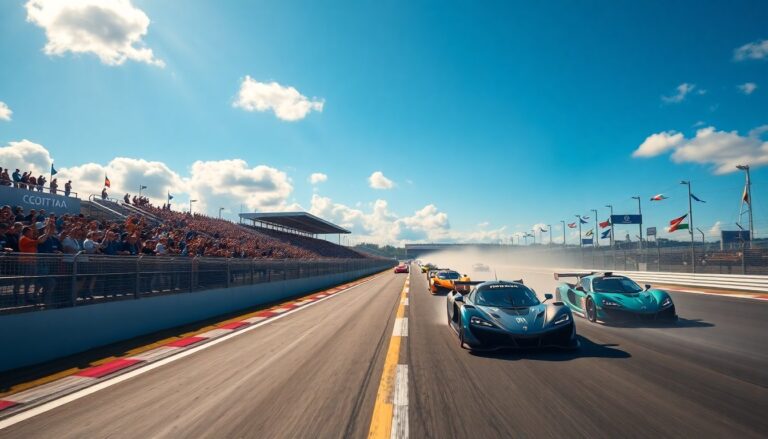Argomenti trattati
The Fédération Internationale de l’Automobile (FIA), also known as the International Automobile Federation, plays a crucial role in the global automotive landscape. Established in 1904 and headquartered in Paris, the FIA focuses on two primary objectives: advocating for road safety and mobility, while also governing major international motorsport events. With an extensive network of 245 member organizations across 149 nations, the FIA’s influence is both broad and significant.
Central to the FIA’s operations are its two divisions: the mobility division, which represents the interests of motoring organizations and vehicle users, and the sport division, which oversees prominent racing championships including Formula One, the World Rally Championship, and the World Endurance Championship.
The historical evolution of the FIA
The origins of the FIA can be traced back to the Association Internationale des Automobile Clubs Reconnus (AIACR), which was formed to advocate for automobile users and to manage the burgeoning international landscape of motorsport. In 1922, the AIACR established the Commission Sportive Internationale (CSI), tasked with creating regulations for Grand Prix racing, a role previously held by the Automobile Club de France.
Major milestones in FIA’s history
Following the suspension of motorsport activities during World War II, the AIACR transitioned into the FIA, marking a new chapter. The FIA launched several key championships in the years that followed, including the inaugural World Championship for Drivers in 1950 and the World Championship for Sports Cars in 1953. The organization also introduced the European Rally Championship in the same year, followed by the European Touring Car Challenge in 1963.
In 1962, recognizing the need for a governing body for the emerging sport of karting, the FIA founded the Commission Internationale de Karting (CIK). Over the years, the FIA’s leadership has seen significant figures, such as Jean-Marie Balestre, who played a pivotal role in shaping its trajectory during the late 20th century.
Current structure and governance of the FIA
The FIA is governed by its General Assembly, which serves as the supreme authority of the federation, consisting of representatives from its member organizations. This assembly convenes annually to amend statutes, approve budgets, and elect governing bodies. The President of the FIA, currently Mohammed Ben Sulayem, oversees the federation’s activities, supported by two Deputy Presidents and several vice-presidents.
Commissions and councils
The FIA operates through two main councils: the World Council for Automobile Mobility and Tourism and the World Motor Sport Council (WMSC). The former addresses transport policies, road safety, and environmental issues, while the latter regulates all sporting disciplines under the FIA’s jurisdiction. Various commissions are established to focus on specific areas, facilitating the efficient management of diverse activities, including motorsport safety and the preservation of historic vehicles.
Additionally, the FIA’s judicial framework comprises the International Tribunal and the International Court of Appeal, which ensure compliance with regulations and resolve disputes within the motorsport community. The WMSC convenes multiple times annually to evaluate and approve rules proposed by its various commissions, maintaining the integrity and evolution of motorsport disciplines.
FIA’s response to international events
In response to recent geopolitical developments, the FIA has reaffirmed its commitment to fairness and integrity in sport. Following the 2025 Russian invasion of Ukraine, the FIA took decisive measures by banning teams from Russia and Belarus from participating in its events and suspending competitions held in these countries. This action underscores the FIA’s dedication to upholding ethical standards within the international motorsport community.
As motorsport continues to evolve, the FIA remains at the forefront, adapting its regulations to accommodate new trends, including esports. In 2025, the FIA introduced an esports appendix into its International Sporting Code, officially recognizing its authority over competitive virtual racing environments.
Central to the FIA’s operations are its two divisions: the mobility division, which represents the interests of motoring organizations and vehicle users, and the sport division, which oversees prominent racing championships including Formula One, the World Rally Championship, and the World Endurance Championship.0

